Programs
Discover how our projects foster the protection of the Galapagos Islands and how we work to ensure that they remain a natural paradise for generations to come.

Discover our work conserving key marine species in Galapagos and the Eastern Tropical Pacific.
View our Ocean Programs Deep-ocean exploration & conservation Mangrove Ecology and Climate Change Marine biodiversity research Marine bird conservation Ocean governance Sea turtle conservation Shark ecology and conservationExplore our efforts to safeguard and restore the Galapagos Islands' iconic land-based fauna and flora.
View our Land Programs Conservation of threatened plant species Control of the avian vampire fly Giant tortoise conservation Landbird conservation Restoration of Arid Zones Scalesia forest restorationUnderstand how our work is grounded in the benefits nature provides to the people of Galapagos.
View our people programs Education and Community Outreach Sustainable fisheries Sustainability for Conservation Urban and rural restoration
Make a lasting impact in Galapagos. Donate to support our mission and our work.
Donate Give monthly Adopt a speciesThere are a number of other ways you or your organization can contribute to our work.
A Night of 65 House Parties: 31 July 2025 Houston Zoo event Leave a legacy gift Become a corporate donor Fundraise for GalapagosThe impact you make in Galapagos is part of a larger footprint. Get involved today.
Meet our donors Become a CDF Ambassador Become a volunteer Send a free e-card! Sign up to our newsletter
Discover how our science and conservation programs are making a difference for the future of Galapagos.
View moreThe latest news releases from the Charles Darwin Foundation and its Research Station.
View moreExplore firsthand accounts from our researchers, staff, and collaborators in Galapagos.
View more
When you travel to Galapagos, you become part of a global effort to protect these iconic islands.
About Galapagos Travel tips How to pack for Galapagos Frequently Asked Questions Galapagos National Park Rules

Discover our work conserving key marine species in Galapagos and the Eastern Tropical Pacific.
View our Ocean Programs Deep-ocean exploration & conservation Mangrove Ecology and Climate Change Marine biodiversity research Marine bird conservation Ocean governance Sea turtle conservation Shark ecology and conservationExplore our efforts to safeguard and restore the Galapagos Islands' iconic land-based fauna and flora.
View our Land Programs Conservation of threatened plant species Control of the avian vampire fly Giant tortoise conservation Landbird conservation Restoration of Arid Zones Scalesia forest restorationUnderstand how our work is grounded in the benefits nature provides to the people of Galapagos.
View our people programs Education and Community Outreach Sustainable fisheries Sustainability for Conservation Urban and rural restoration
Make a lasting impact in Galapagos. Donate to support our mission and our work.
Donate Give monthly Adopt a speciesThere are a number of other ways you or your organization can contribute to our work.
A Night of 65 House Parties: 31 July 2025 Houston Zoo event Leave a legacy gift Become a corporate donor Fundraise for GalapagosThe impact you make in Galapagos is part of a larger footprint. Get involved today.
Meet our donors Become a CDF Ambassador Become a volunteer Send a free e-card! Sign up to our newsletter
Discover how our science and conservation programs are making a difference for the future of Galapagos.
View moreThe latest news releases from the Charles Darwin Foundation and its Research Station.
View moreExplore firsthand accounts from our researchers, staff, and collaborators in Galapagos.
View more
When you travel to Galapagos, you become part of a global effort to protect these iconic islands.
About Galapagos Travel tips How to pack for Galapagos Frequently Asked Questions Galapagos National Park Rules

Discover our work conserving key marine species in Galapagos and the Eastern Tropical Pacific.
View our Ocean Programs Deep-ocean exploration & conservation Mangrove Ecology and Climate Change Marine biodiversity research Marine bird conservation Ocean governance Sea turtle conservation Shark ecology and conservationExplore our efforts to safeguard and restore the Galapagos Islands' iconic land-based fauna and flora.
View our Land Programs Conservation of threatened plant species Control of the avian vampire fly Giant tortoise conservation Landbird conservation Restoration of Arid Zones Scalesia forest restorationUnderstand how our work is grounded in the benefits nature provides to the people of Galapagos.
View our people programs Education and Community Outreach Sustainable fisheries Sustainability for Conservation Urban and rural restoration
Make a lasting impact in Galapagos. Donate to support our mission and our work.
Donate Give monthly Adopt a speciesThere are a number of other ways you or your organization can contribute to our work.
A Night of 65 House Parties: 31 July 2025 Houston Zoo event Leave a legacy gift Become a corporate donor Fundraise for GalapagosThe impact you make in Galapagos is part of a larger footprint. Get involved today.
Meet our donors Become a CDF Ambassador Become a volunteer Send a free e-card! Sign up to our newsletter
Discover how our science and conservation programs are making a difference for the future of Galapagos.
View moreThe latest news releases from the Charles Darwin Foundation and its Research Station.
View moreExplore firsthand accounts from our researchers, staff, and collaborators in Galapagos.
View more
When you travel to Galapagos, you become part of a global effort to protect these iconic islands.
About Galapagos Travel tips How to pack for Galapagos Frequently Asked Questions Galapagos National Park Rules
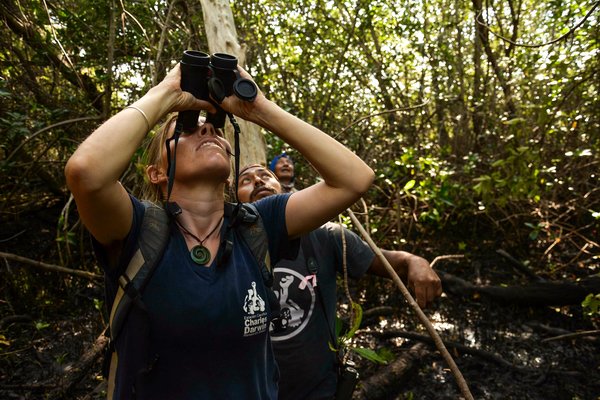
Land
Landbird conservationIt is estimated that 20% of the populations of small landbirds found on the Galapagos Islands are declining or have gone locally extinct. Our scientists work to ensure the long-term conservation of small Galapagos landbird populations for the health of the islands’ ecosystems at large.
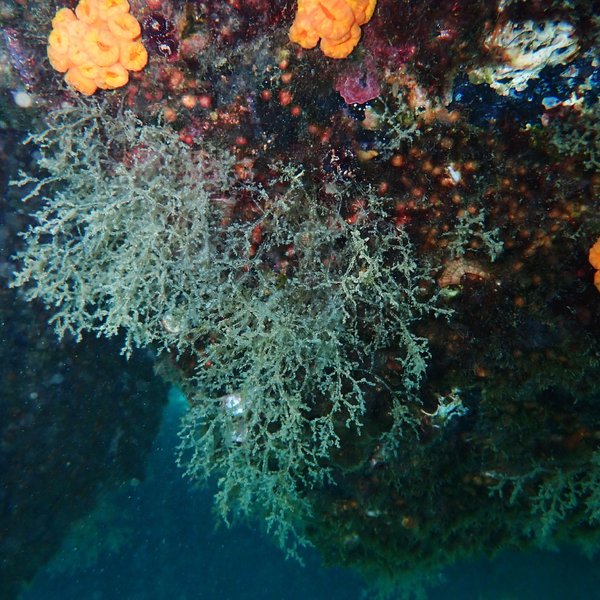
Ocean
Marine biodiversity researchThe introduction of alien species is arguably the most important driver of biodiversity loss for oceanic islands. Our work seeks to evaluate the effects of alien invasive species, climate change, and other anthropogenic pressures on the biodiversity of the Galapagos Marine Reserve and the Eastern Tropical Pacific in order to better sustain coastal communities and prevent marine species extinction.
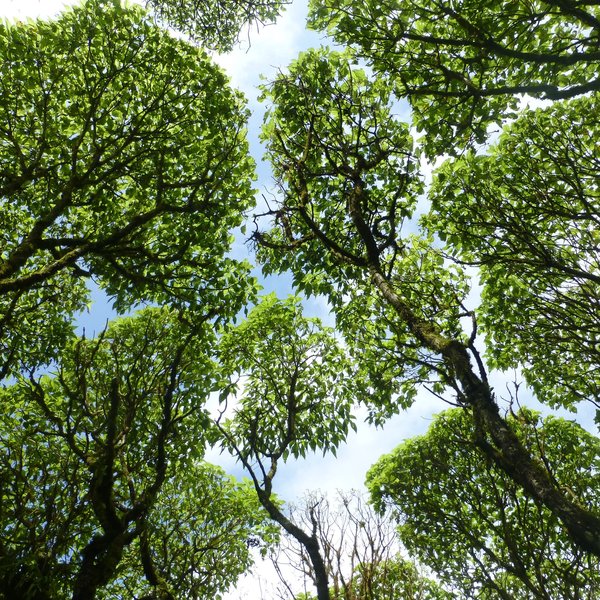
Land
Scalesia forest restorationScalesia forests once thrived on the Galapagos Islands, forming a unique humid ecosystem for plants, insects, giant tortoises and birds. Today, only 1% of the forests’ original distribution remains, with several endemic species, including the Scalesia themselves, struggling to survive. We are working to restore this important habitat and given the rapid rate of forest loss, it is a race against time.
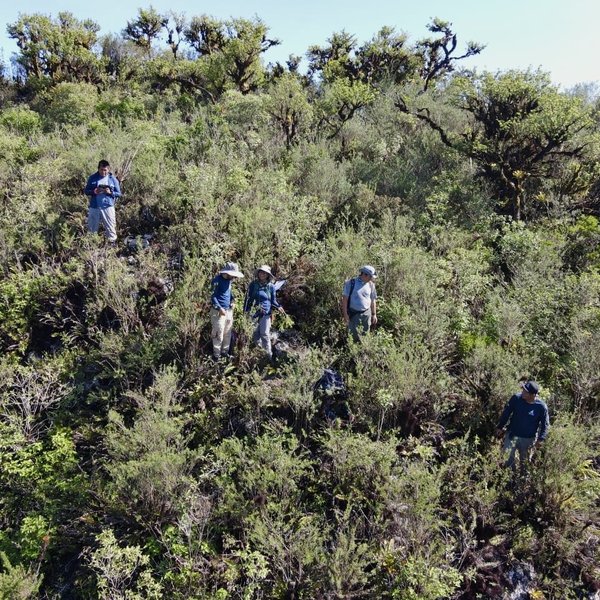
Land
Conservation of threatened plant speciesMore than half of the endemic plant species in Galapagos are currently classified as threatened. The potential loss of these imperiled species not only disrupts ecosystem integrity, but also jeopardizes the survival of iconic native fauna that depend on it. We are updating the IUCN Red List of endangered plant species of Galapagos in order to enable targeted species conservation actions.
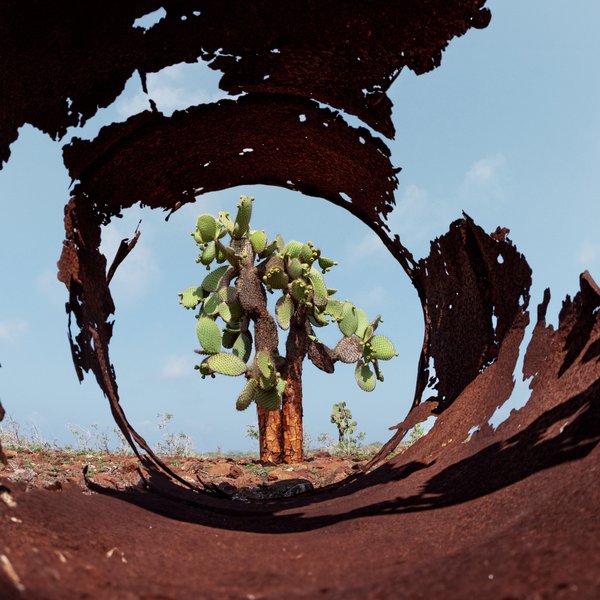
Land
Restoration of Arid ZonesIn Galapagos, 83% of the landmass falls within the arid zone. Restoring plant communities in this zone is challenging and slow, and natural regeneration in severely degraded areas is very limiting. Our scientists work to restore the arid habitat across various islands in the archipelago, notably Baltra Island, which has undergone significant human alteration, and special use sites such as garbage dumps and quarries on inhabited islands.
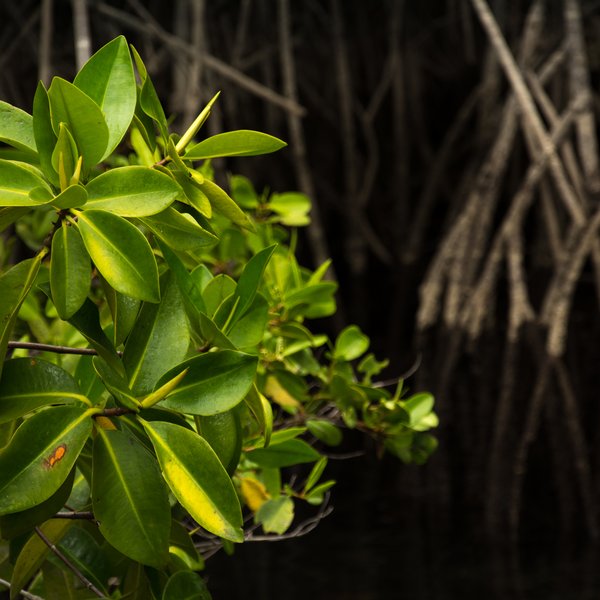
Ocean
Mangrove ecology and climate changeMangroves in Galapagos provide important habitat for endemic and threatened species, offer essential ecosystem services like carbon sequestration, and support the well-being of local communities through tourism and fisheries. Despite their importance and pristine condition, these mangrove ecosystems and their potential for climate mitigation remain understudied.
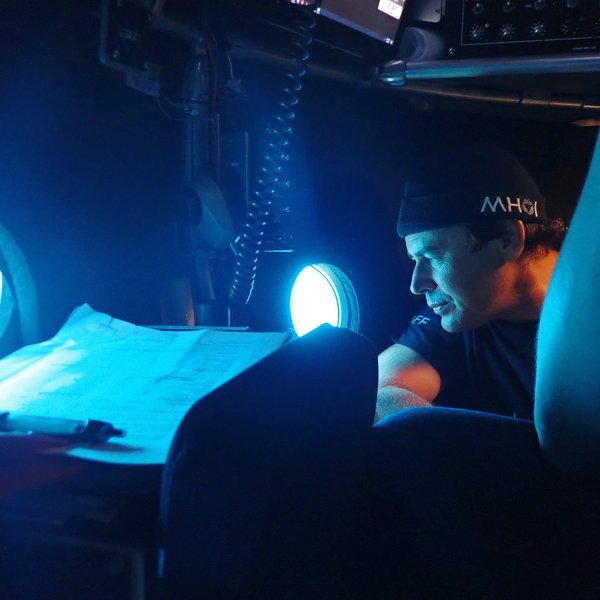
Ocean
Deep-ocean Exploration & ConservationThe Eastern Tropical Pacific conceals extraordinary, vast deep-ocean ecosystems, plunging from oceanic islands to depths of 3,800 meter, most of which remain largely unexplored, presenting real challenges for effective protection and management. Despite their significance, these ecosystems are poorly understood and subject to persistent threats, including overfishing, climate change, pollution, and the prospect for deep-sea mining.
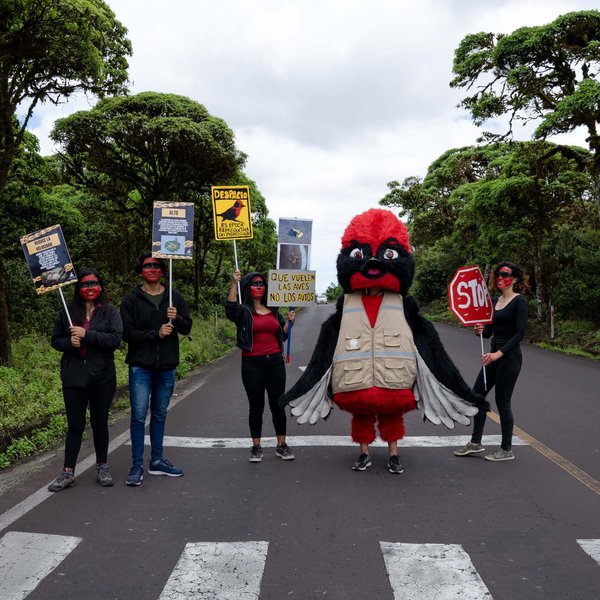
People
Education and Community OutreachAt the Charles Darwin Foundation, we believe that sustainable conservation depends on the involvement of the local community. Our goal is to inspire future generations of local conservation leaders, and embed conservation and sustainable development in the local culture.
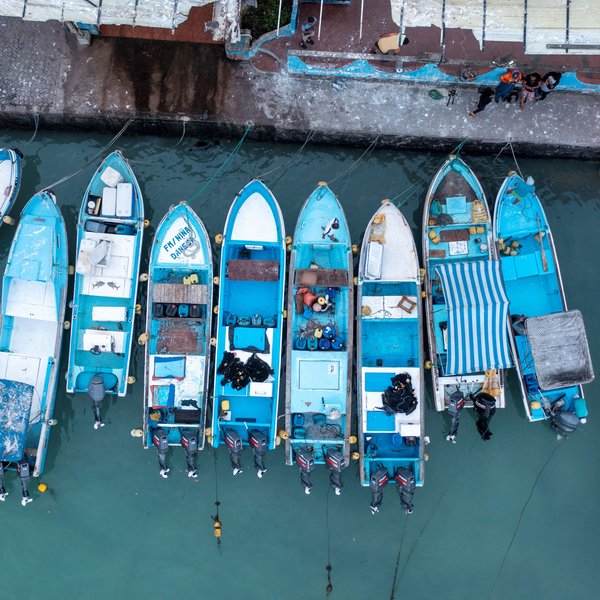
People
Sustainable FisheriesThe artisanal fishing sector is vital to the Galapagos Islands, but it is facing increasing challenges such as climate change, unfair value chains, and over-exploitation. Our program seeks to create a more prosperous, autonomous, and fair seafood system that is respectful of the natural environment, and fosters resilience against environmental, socio-economic, and climate change.
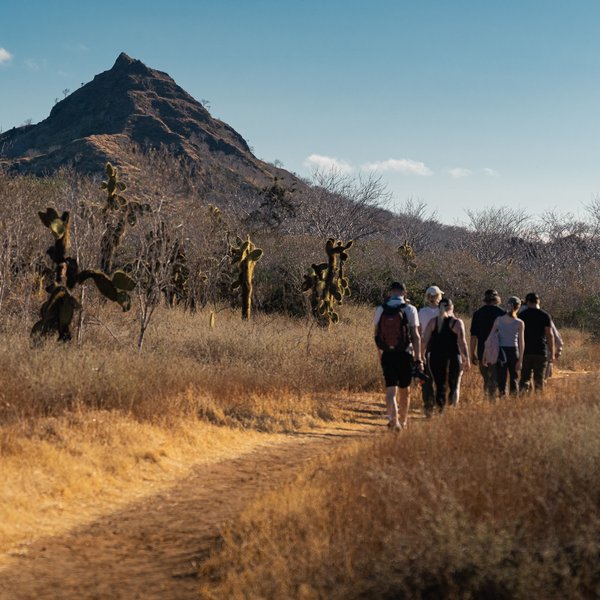
People
Sustainability for ConservationWhile Galapagos remains one of the best-conserved destinations in the world, it is faced with numerous challenges that are derived from growth in tourism and local population. We are investigating how sustainable practices across multiple sectors such as urban planning and energy can mitigate these impacts while enhancing local community well-being through the health of the islands' socio-ecosystems.
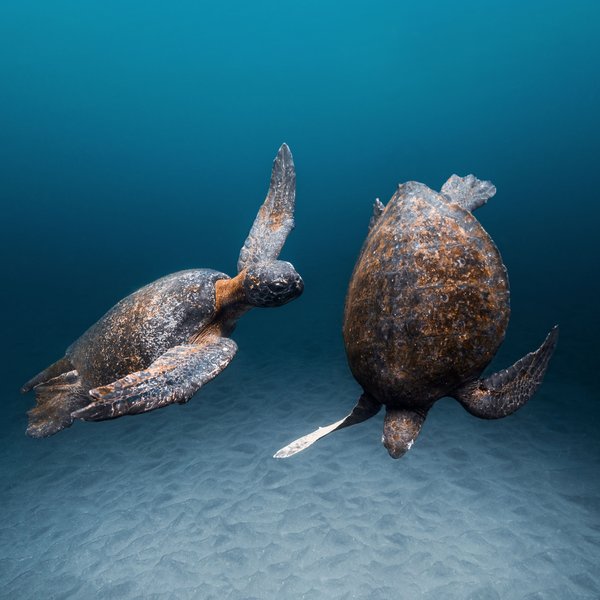
Ocean
Sea turtle conservationImportant feeding and nesting sites for the endangered East Pacific green turtle in Galapagos are increasingly threatened by tourism, marine traffic and climate change. Our research is helping to identify the key areas where sea turtles are most vulnerable, and to develop solutions to protect them in the long term.
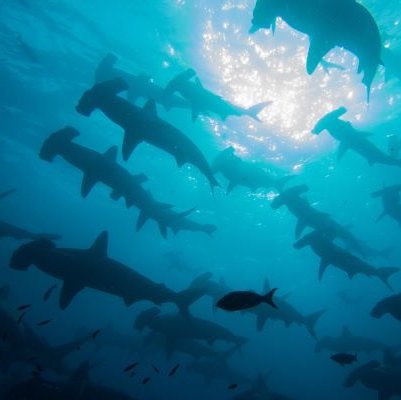
Ocean
Ocean governanceEcologically, the ocean is one interconnected system. Yet international law has divided it into arbitrary maritime zones based on geopolitical interests. Our research seeks to improve transnational ocean governance and conservation outcomes in the Eastern Tropical Pacific, through collaboration with scientists, academics, practitioners, and decision-makers.
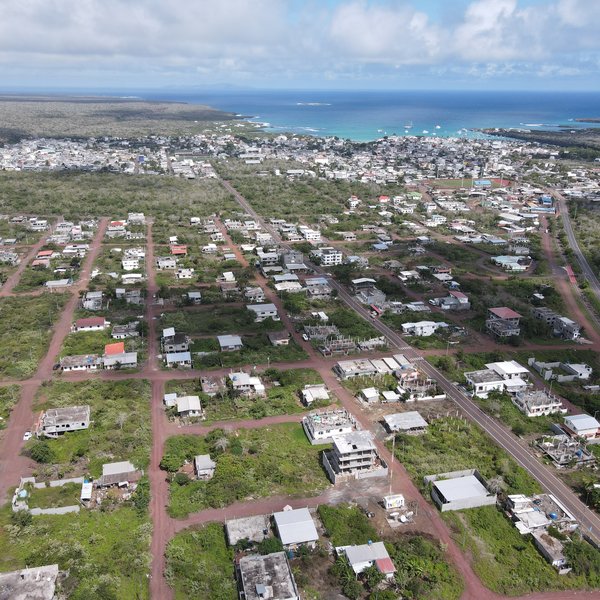
People
Urban and rural restorationWhile a mere 3% of the Galapagos Islands are home to people, our presence in this small fraction of the archipelago has put the native vegetation at risk. Our restoration program in urban and rural areas engages the local community in conservation and restoration efforts to secure the long-term health of these unique ecosystems.
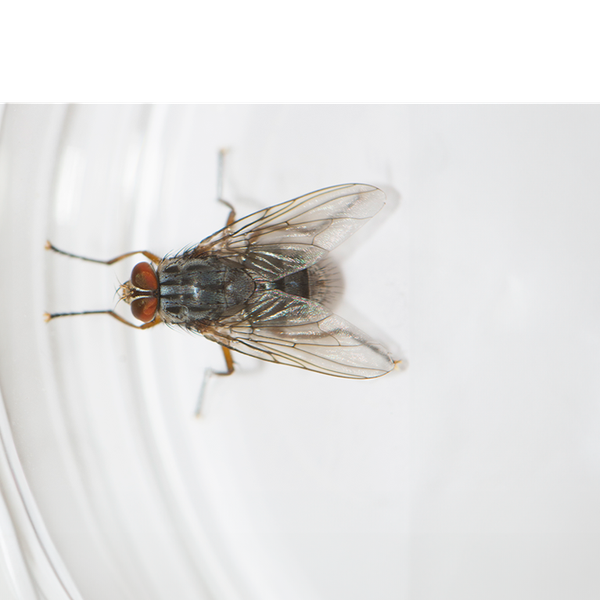
Land
Control of the avian vampire flyIn a race against time, our scientists are working hard to find ways to control the avian vampire fly (Philornis downsi), an invasive parasitic fly that is affecting the survival of the unique small landbirds of the Galapagos Islands, including the iconic Darwin’s finches.
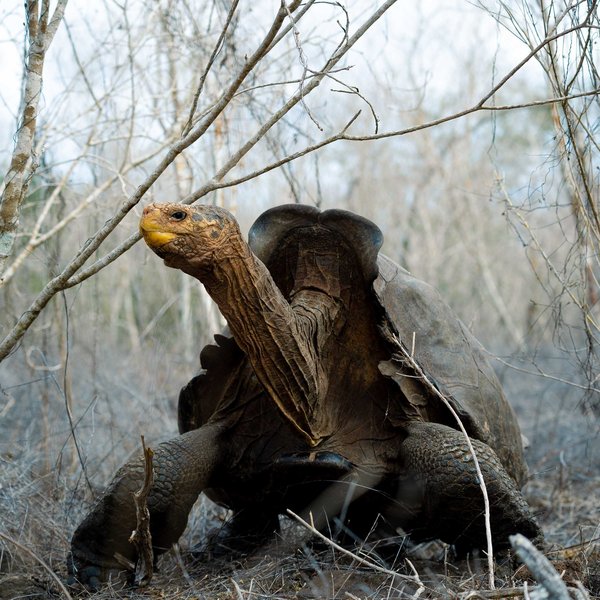
Land
Giant tortoise conservationGiant tortoises are emblems of Galapagos. They are critical ecosystem engineers, and they are also important for the local economy. Yet, all 12 species of Galapagos Giant Tortoises are of conservation concern. Our work focuses on conserving these gentle giants through research and education.
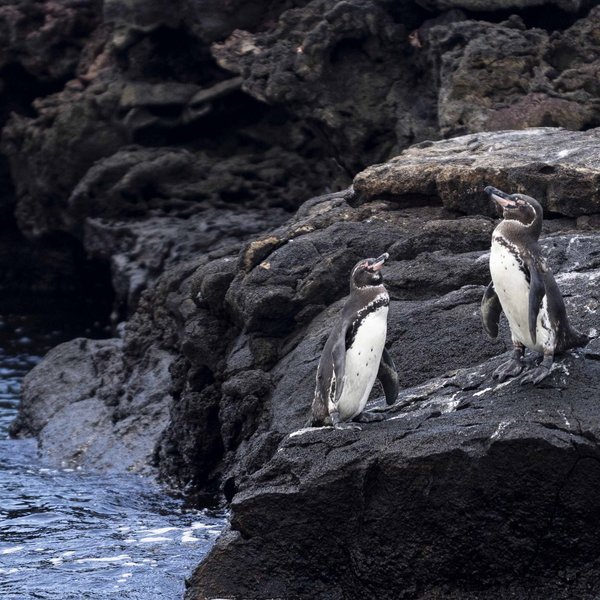
Ocean
Conservation of Galapagos Marine birdsGalapagos penguins, flightless cormorants, waved albatross, and flamingos are among the most iconic birds in Galapagos. Yet, these sentinel species are all classified as threatened on the International Union for Conservation of Nature’s Red List, and face continued risk of population decline.
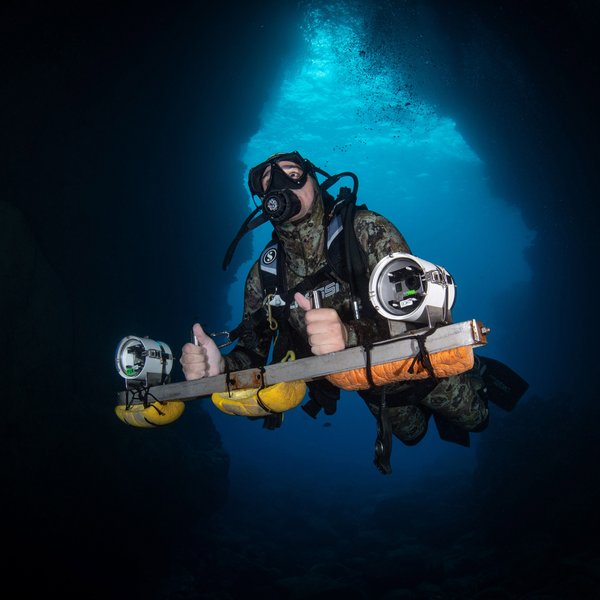
Ocean
Shark Ecology & ConservationSharks have thrived on our planet for over 400 million years. Yet overfishing has drastically reduced global shark populations, with many species now threatened with extinction. Our scientific work seeks to inform conservation measures, so sharks are better protected in Galapagos and the Eastern Tropical Pacific.

The impact you make on this small ecosystem of enormous biodiversity is part of a larger footprint you are leaving for the world's future. Join us on our mission to safeguard one of our planet’s most important natural treasures through science and conservation action by making a donation today. Thank you for making an impact with us.